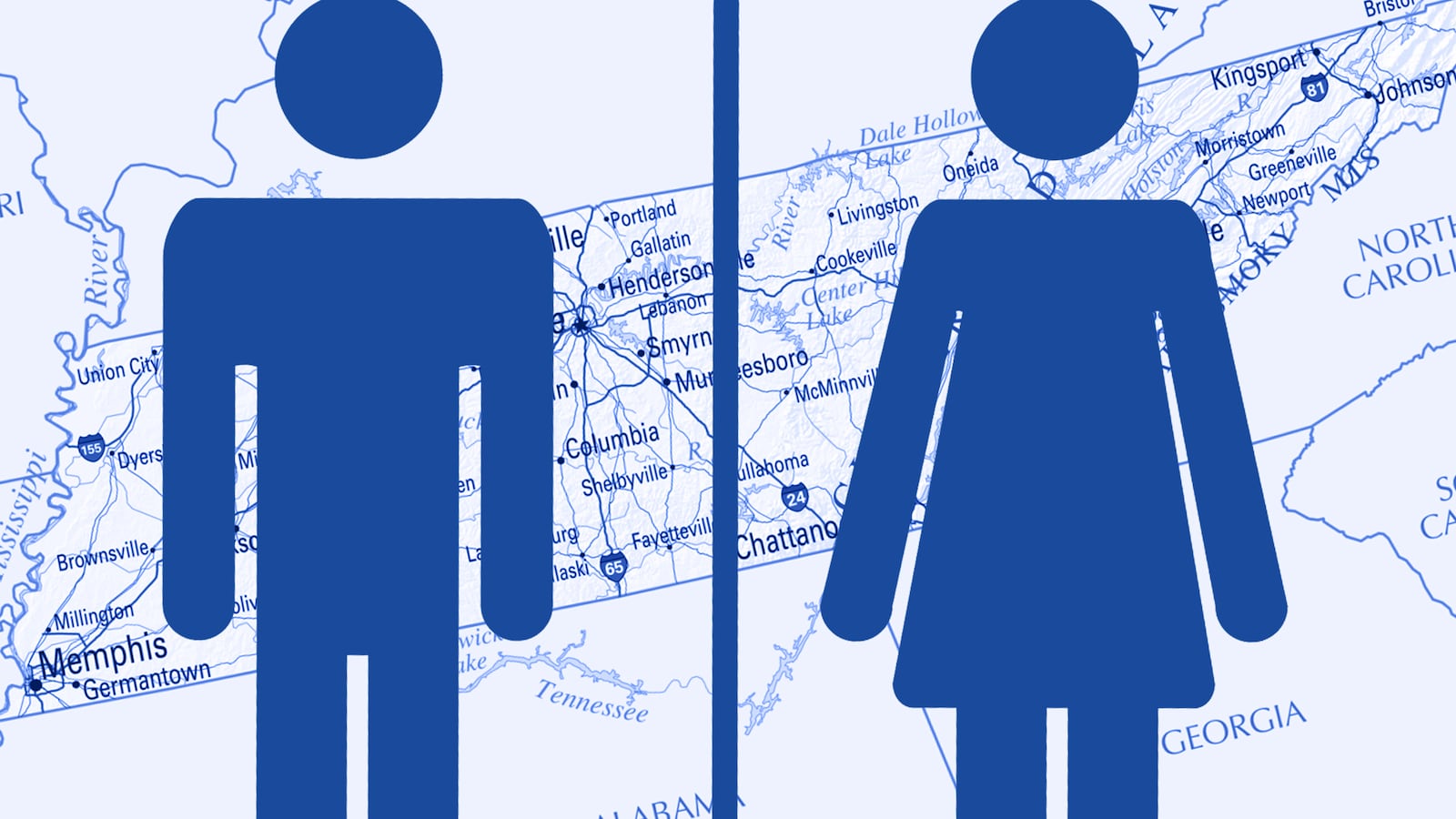This Tuesday, Tennessee legislators listened to transgender teenager Henry Seaton testify that a bill restricting restroom access for students like him could cause the suicide rate to rise.
“When you don’t have a restroom to use, that really encourages those numbers to increase exponentially,” he said.
But the lawmakers either didn’t believe him or didn’t care. The bill, HB 2414, cleared the House Education Administration and Planning Subcommittee with a unanimous vote. If it becomes law, Tennessee will become the first state to ban transgender students from using restrooms that correspond with their gender identity.
Seaton wasn’t lying about the law’s stakes. Keeping transgender students out of bathrooms increases the already high likelihood that they will attempt suicide.
A February 2016 study in The Journal of Homosexuality used data from the National Transgender Discrimination Survey to analyze the relationship between suicidality and transgender college students’ access to bathrooms and campus housing. The researchers found that “denial of access to either space had a significant relationship to suicidality, even after controlling for interpersonal victimization.”
This suggests that even if schools were devoid of anti-transgender bullying—a tall order given the fact that 75 percent of transgender youth feel unsafe at school—barring bathroom access would still likely increase suicide risk.
But HB 2414 isn’t grounded in fact. It’s part of a continuing legislative attack on transgender people, especially trans kids. A recent report from the Human Rights Campaign found that there are 44 anti-transgender bills under consideration in 16 states. Over half of these bills target youth.
HB 2414 would require “that a student use student restroom and locker room facilities that are assigned for use by persons of the same sex as the sex indicated on the student’s original birth certificate.”
Because Tennessee is one of the few states that does not allow people to change the gender marker on a birth certificate under any circumstances, this bill would force transgender students to use the wrong restroom even if they have undergone clinical treatment for gender transition.
Proponents of HB 2414 and other anti-transgender “bathroom bills” cite privacy and the safety of other students as reasons to pass the legislation.
During discussion of the bill, committee chairman Rep. Mark White said, “We don’t take this lightly. But we’re trying to decide the privacy of all students.”
But there is absolutely no evidence to suggest that “bathroom bills” are necessary to protect the privacy or safety of non-transgender students. There are zero reported instances of transgender people harassing or assaulting non-transgender people in restrooms. Attacking someone in a bathroom is already illegal and punishable without any additional legislation.
Even though the myths surrounding the transgender bathroom debate are easily debunked, local television stations tend to lend them credence by not inviting guests who will criticize them.
Meanwhile, back in the realm of facts, there are clear indications that “bathroom bills” would physically harm transgender youth and potentially put their lives at risk.
As Seaton noted in his testimony, 54 percent of transgender respondents to a Williams Institute survey reported experiencing physical problems—such as dehydration, urinary tract infections, and kidney problems—caused by avoiding public restrooms (PDF).
“There are lots of times where I don’t use the restroom and I go home with stomachaches and dehydration,” Seaton personally testified.
Sixty-eight percent of respondents to the Williams Institute survey had experienced verbal harassment in a restroom. Of the respondents who were in school, ten percent said that denial of restroom access had negatively impacted their education.
And to be clear, the majority of transgender students have already been forced to use a bathroom that doesn’t match their gender. The latest school climate survey from GLSEN found that over 59 percent of transgender students had been required to use a bathroom or locker room that matches their original birth certificate (PDF).
But that requirement—along with any law that would formalize it—is unconstitutional, as the American Civil Liberties Union (ACLU) has repeatedly pointed out. In 2014, the U.S. Department of Education clarified that Title IX’s prohibition of sex discrimination “extends to claims of discrimination based on gender identity” (PDF). ACLU of Tennessee Executive Director Hedy Weinberg believes the state could lose up to $6 billion in federal funding if HB 2414 becomes law. That’s a lot of money to waste on the spurious myth that transgender students make restrooms unsafe.
HB 2414 will now move to a full house committee. This month, South Dakota narrowly avoided becoming the first state to restrict transgender students’ right to use the restroom when the state legislature tried and failed to overturn Gov. Dennis Daugaard’s veto of yet another “bathroom bill.”“House Bill 1008 does not address any pressing issue concerning the school districts of South Dakota,” the governor wrote in his veto message.
The only pressing issue that Tennessee’s bill satisfies is the transparent bigotry of its proponents.






